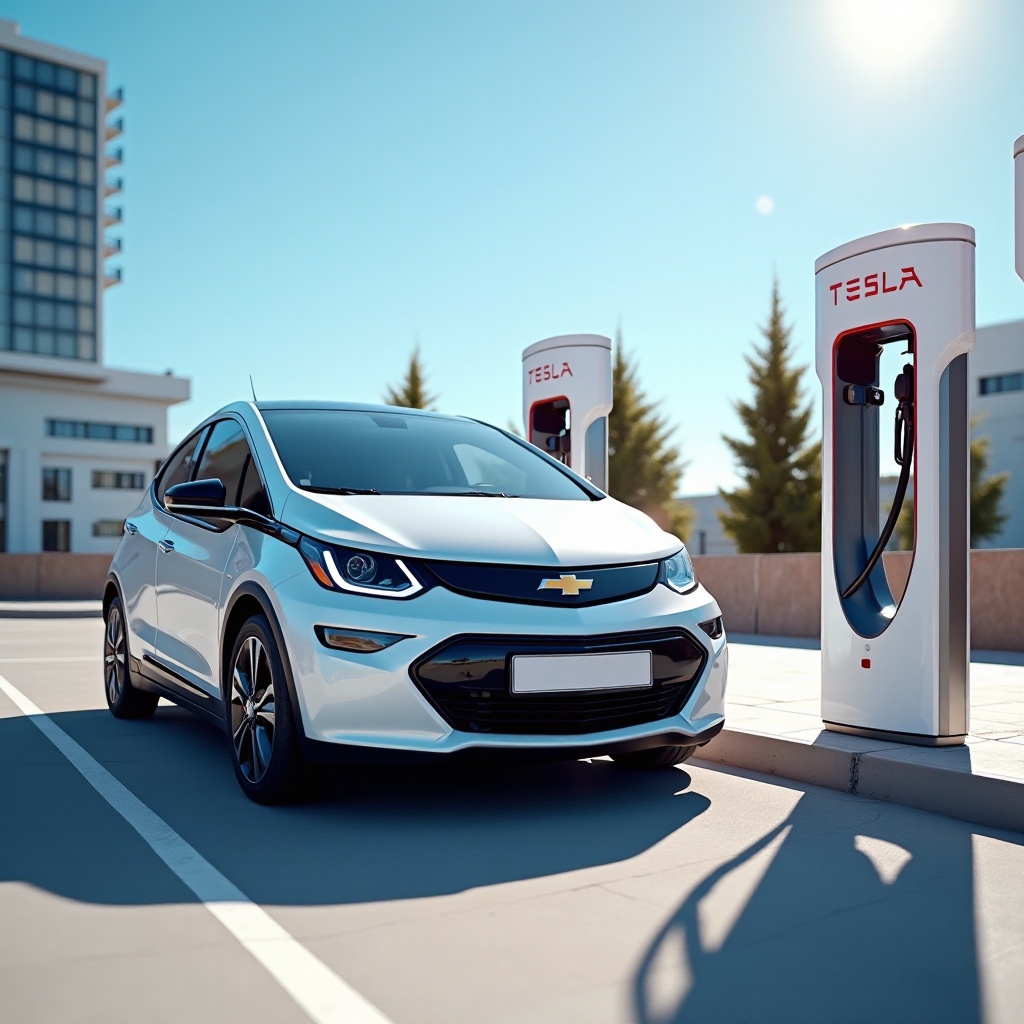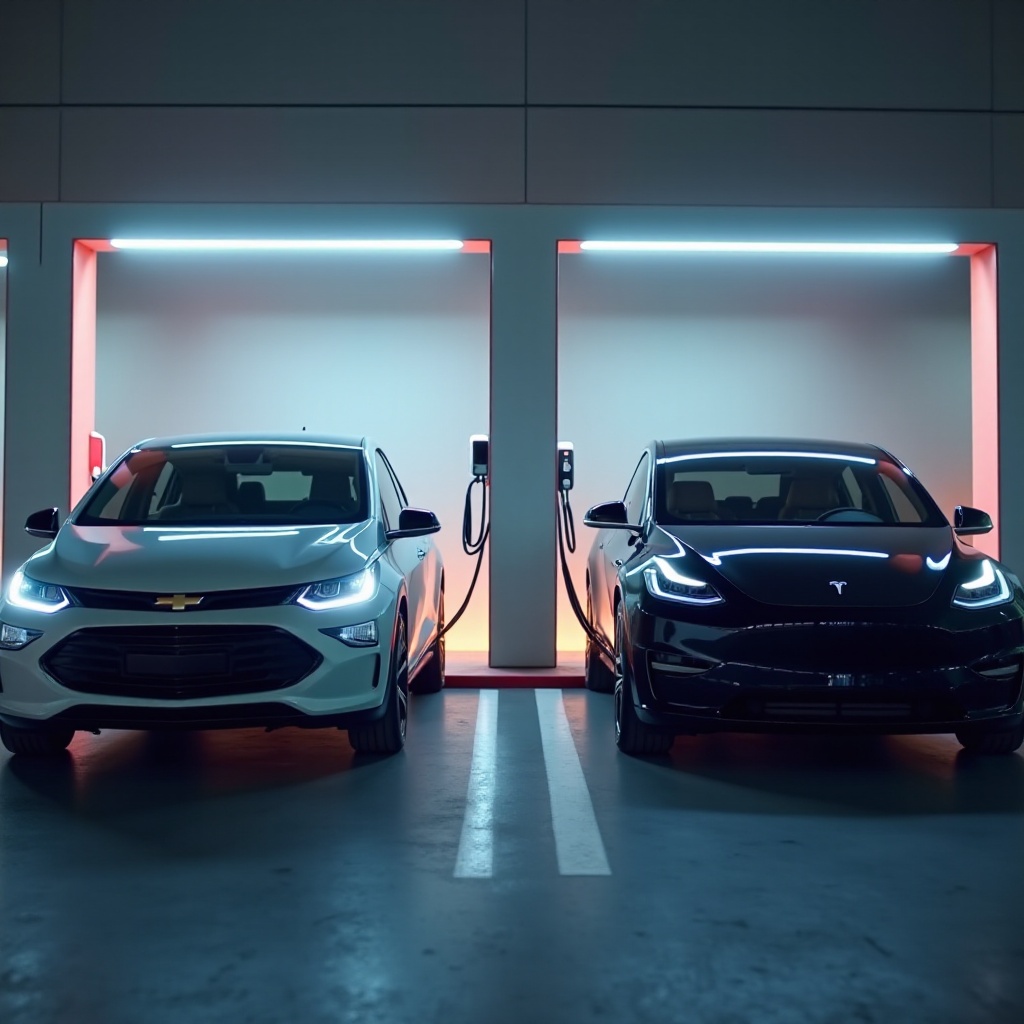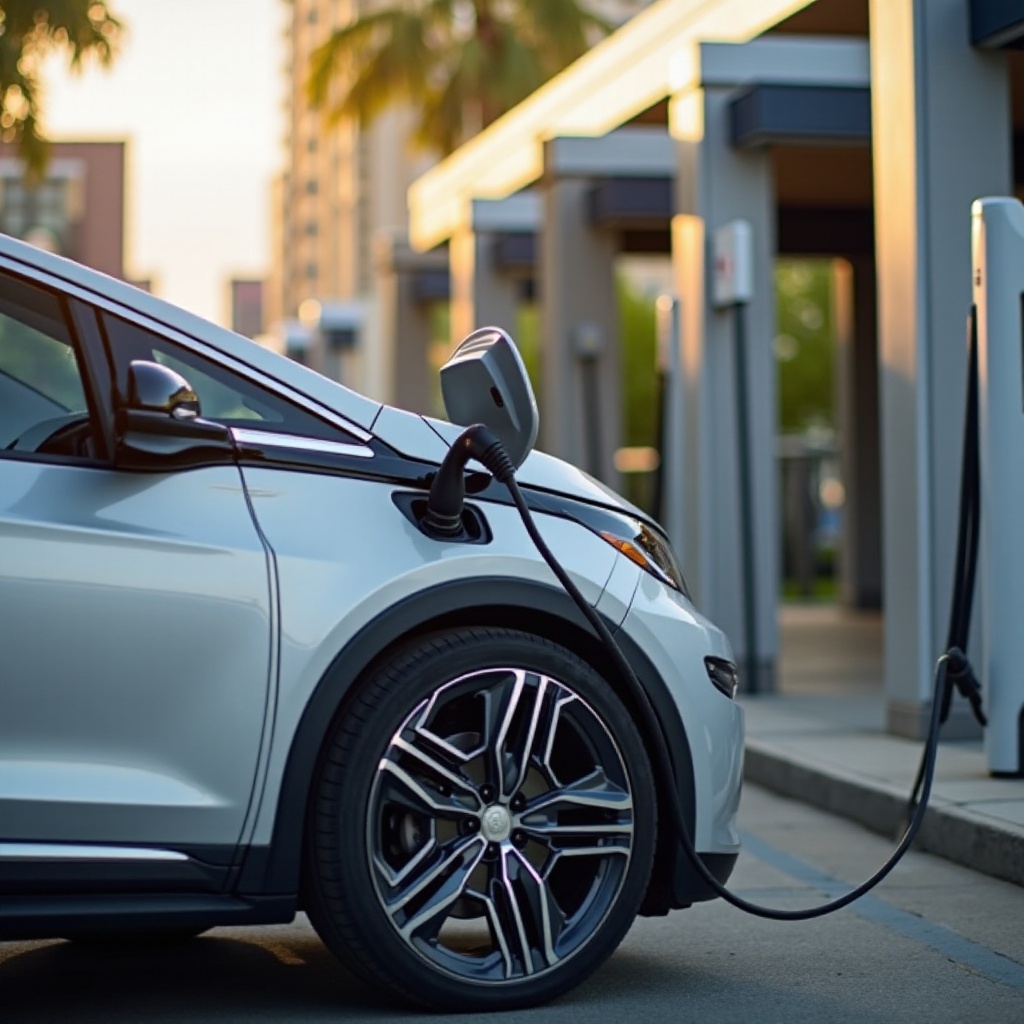Introduction
Electric vehicle (EV) enthusiasts often wonder, ‘Can a Chevy Bolt use a Tesla Supercharger?’ As EVs become more popular, the demand for dependable charging stations surges. Tesla’s Supercharger network, renowned for its speed and reliability, attracts attention. But what about Chevy Bolt owners? This blog explores whether a Chevy Bolt can charge at Tesla Superchargers, the compatibility issues involved, and alternative charging solutions.

Overview of EV Charging Infrastructure
Electric vehicle charging infrastructure has evolved significantly over the past decade. Chargers are categorized into Level 1, Level 2, and DC Fast Chargers based on their speed and capacity.
- Level 1 Chargers: Standard household outlets. They offer slow charging, making them less ideal for quick recharges but suitable for overnight home charging.
- Level 2 Chargers: Found in public places, homes, or workplaces, these chargers deliver more power than Level 1, reducing charging times considerably.
- DC Fast Chargers: The fastest chargers, commonly found in public stations, capable of charging an EV in under an hour.
Tesla’s Superchargers belong to the DC Fast Charger category and are known for their efficiency. However, Chevy Bolt owners face unique challenges due to compatibility concerns, which we will examine next.

Tesla Supercharger Network
Tesla’s Supercharger network is extensive, with thousands of stations worldwide. Designed specifically for Tesla vehicles, these Superchargers offer rapid charge times, adding up to 200 miles of range in about 15 minutes.
- Dedicated Network: Tesla’s interconnected network ensures comprehensive coverage and seamless integration with Tesla cars, optimizing charge times and convenience.
- Proprietary Connectors: Tesla chargers use unique connectors designed to work perfectly with their vehicles. This exclusivity contributes to compatibility issues with other EV brands like Chevy.
The Tesla Supercharger network’s abundance and efficiency appeal to all EV owners, but its specific technology poses challenges and limitations for non-Tesla vehicles.
Chevy Bolt’s Charging Capabilities
The Chevy Bolt offers versatile charging options but faces constraints with Tesla Superchargers:
- Charging Ports: The Chevy Bolt features a CCS (Combined Charging System) port for Level 2 and DC Fast Charging, which differs from Tesla’s proprietary connector.
- Charging Times: With a Level 2 charger, the Chevy Bolt can fully charge in about 9.5 hours. Using DC Fast Charging, it can gain up to 100 miles of range in roughly 30 minutes.
- Home Charging Solutions: Many Chevy Bolt owners install Level 2 chargers at home for convenience, providing an efficient solution for daily commuting.
Despite the Chevy Bolt’s range of charging solutions, its design limits compatibility with Tesla’s Supercharger network.

Compatibility Issues
Several factors hinder compatibility between Chevy Bolts and Tesla Superchargers:
- Connector Types: Tesla Superchargers have a proprietary connector distinct from the CCS connectors used in Chevy Bolts.
- Software Communications: Tesla’s network uses specific protocols to authorize and manage charging, which non-Tesla vehicles cannot support.
- Adapter Availability: While some adapters can convert certain connectors, adapting a Tesla Supercharger to a Chevy Bolt’s CCS port is complex and restricted by Tesla’s policies.
Though third-party solutions claim to overcome these barriers, their safety and reliability are not universally guaranteed.
Real-World Experiences
Chevy Bolt owners’ experiences shed light on these issues:
- Mixed Results: Some users have had limited success with third-party adapters at Tesla Superchargers, but these are exceptions rather than the norm.
- Inconvenience: The need for adapters and inconsistent results make this approach impractical for most Chevy Bolt owners.
- Community Feedback: EV forums are filled with advice from experienced users who generally discourage using Tesla Superchargers for non-Tesla vehicles due to compatibility issues.
Such experiences underscore the need to understand each EV’s charging system and use compatible networks for reliability.
Alternatives and Solutions
Given the compatibility issues, Chevy Bolt owners might consider several alternatives:
- Public Charging Networks: Networks like ChargePoint, EVgo, and Electrify America offer extensive DC Fast Charging stations compatible with the Chevy Bolt’s CCS ports.
- Home Charging: Installing a Level 2 home charging station ensures your Chevy Bolt is fully charged overnight, providing a reliable daily solution.
- Destination Chargers: Many hotels, shopping centers, and workplaces offer Level 2 charging stations, providing convenient options while running errands or during extended stays.
These alternatives offer practical and convenient solutions for Chevy Bolt owners, ensuring access to compatible and efficient charging sources at all times.
Conclusion
The Tesla Supercharger network offers exceptional speed and convenience but is exclusive to Tesla vehicles. Understanding these limitations and exploring the wide array of compatible charging options ensures Chevy Bolt owners can enjoy a seamless and efficient EV experience.
Frequently Asked Questions
Can you charge a Chevy Bolt at a Tesla Supercharger?
No, Chevy Bolt vehicles cannot charge at Tesla Superchargers due to incompatible connectors and communication protocols.
What adapters are available for Chevy Bolt to use Tesla Superchargers?
Currently, no official adapters enable Chevy Bolt to charge at Tesla Superchargers. Third-party solutions exist but are not reliable or recommended.
What are the best charging networks for Chevy Bolt owners?
The best charging networks for Chevy Bolt owners include ChargePoint, EVgo, and Electrify America, which provide widespread, reliable, and fast-charging options.
